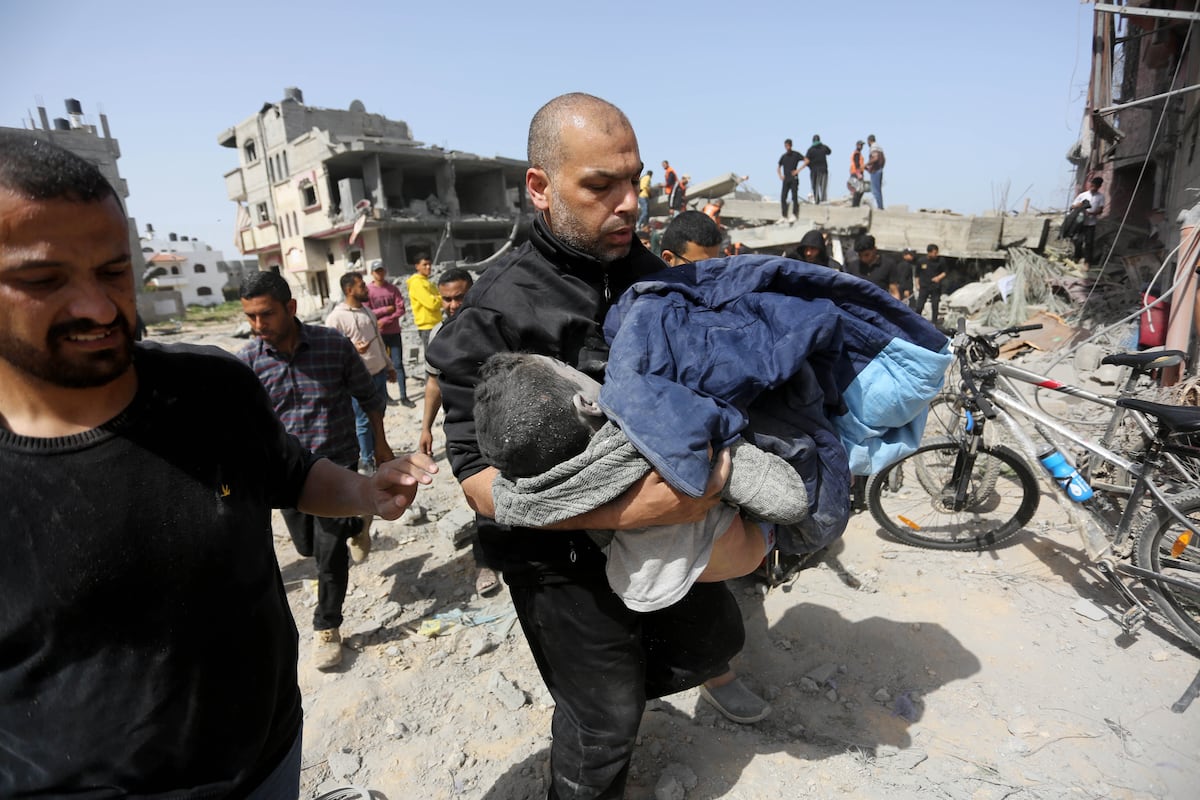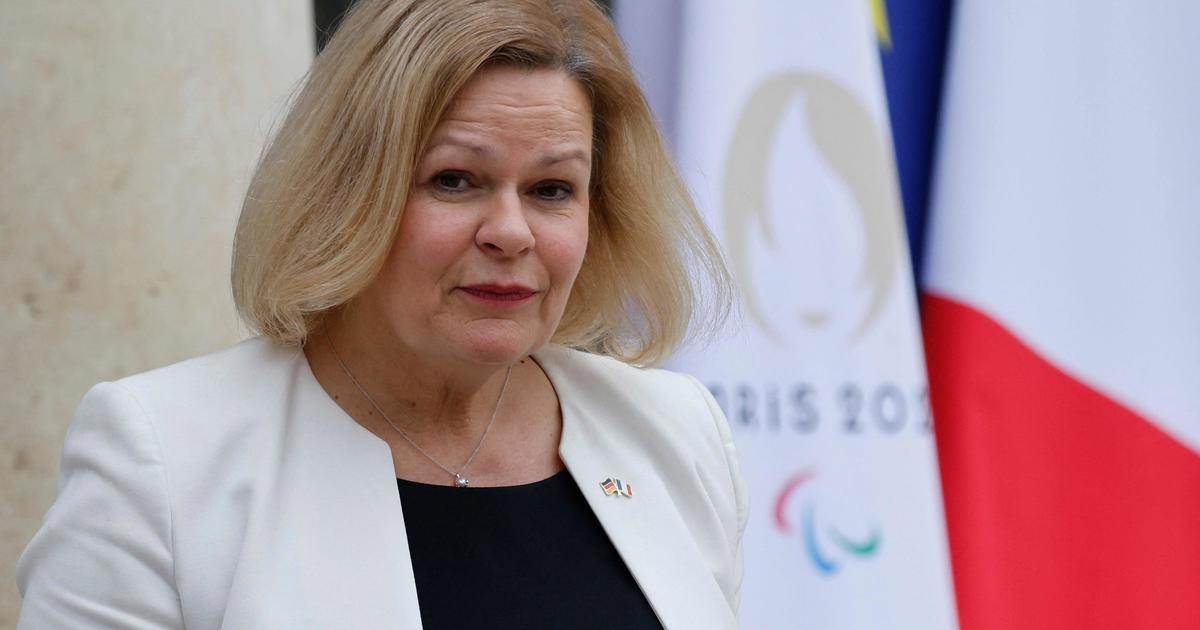Icon: enlarge
A shop in Berlin is promoting the sale of fireworks
Photo: Wolfgang Kumm / dpa
After the last meeting with the federal states, Chancellor Angela Merkel (CDU) could hardly hide her disappointment.
She had hoped for new guidelines, said Merkel last week, "every day counts in the fight against the corona virus."
But the prime ministers initially postponed the decision on new anti-corona measures.
While Angela Merkel insisted on new tightening, the country chiefs weighed down: After two weeks of shutdown, it was still too early for new rulings.
Now they signal movement.
Nobody speaks of loosening up, instead they scratch a shrine of the Germans: the firecrackers on New Year's Eve.
The restrictions will remain in place until January
A partial shutdown has been in effect in Germany since the beginning of November, including the catering and many cultural establishments.
Without an extension, the rules would expire at the end of the month - it is now clear that the restrictions will also apply in December.
Even in the otherwise more lax Eastern countries they agree.
It is now "not the time to relax," said Brandenburg's Prime Minister Dietmar Woidke (SPD).
On Wednesday, the country leaders will once again get together with the Chancellor.
Unlike last time, the provincial princes seek a compromise among themselves before they meet Angela Merkel.
According to a draft resolution from the state of Berlin, which SPIEGEL has received, the shutdown that has so far applied in Germany is to remain in place until December 20.
Previous measures are confirmed, new ones announced.
Berlin, a state governed by the SPD, currently holds the chairmanship of the Prime Minister's Conference (MPK).
Proposals from the preliminary discussions of the countries have flowed into the paper, but of course the concept has a social-democratic list.
Dispute over New Year's Eve
If there is no “nationally significant downward trend” in the number of infections, the R value and the occupancy of the intensive care units on December 20, the measures should be extended “for 14 days” until this trend is established.
However, there are intermediate rules for Christmas and New Year's Eve that have yet to be fought out.
There are also still arguments about a ban on the sale of New Year's Eve crackers and possible easing for counties with particularly low incidence values.
»Renewed joint effort«
From the draft resolution
There is agreement that the measures must continue.
Twice in the paper there is talk of "renewed joint effort".
According to SPIEGEL information, the Prime Ministers want to finally agree on a common line in a telephone conference this Monday evening, with which they want to go into the new consultations with Merkel.
These are the most important points:
Contacts:
Private meetings are to be limited in future to only five people from two households.
Meetings of two households with up to ten people are currently allowed.
Children up to 14 years of age are excluded from the count.
However
, the restriction
is to be lifted
for the holidays
.
Then an upper limit of either five or up to ten people should apparently apply regardless of the number of households involved.
The exact value is still being negotiated.
It has also not yet been decided whether the easing should apply for the period from December 21st to 27th or even until January 3rd.
Schools and kindergartens
should remain open.
However
, the Union-
led federal states require a
basic mask requirement in
front of and on the school premises.
Exceptions should be possible for primary schools.
The Christmas holidays should start on December 21st, and
targeted quick tests
should be
possible
in schools
to identify hotspots at an early stage.
Accommodation offers
in Germany are only valid for necessary and expressly not for tourist purposes.
The
restaurants
, bars, discos and pubs will remain closed.
The same applies to cosmetic studios, massage practices and tattoo studios.
Hairdressing salons will
remain open - subject to the existing hygiene requirements.
Restaurants are also allowed to continue to offer delivery services.
Theaters, museums, cinemas and other
venues
that serve the Conversation, still closed.
The November
aid
to
support the catering industry
is to be extended as December
aid
, according to a separate paper from the Union countries that is available to SPIEGEL.
Showmen and market traders should also be expressly included in the corresponding funding programs.
Shopping:
Further remain open wholesale and retail, the existing
mask duty
shall, however, even before retail stores and parking
extended
are.
Companies should also work towards doing Christmas shopping during the week if possible.
One is aware that "discipline and patience will be put to the test this winter," says the paper.
The prime ministers are therefore also discussing an »opt-out clause«: countries with particularly few newly infected people should be able to relax the closings on their own initiative.
The CDU-led countries propose less than 50 new infections per week and 100,000 inhabitants as a milestone, the SPD-governed countries want the stricter incidence value of 35
.
"Ban firecrackers is unthinkable"
The incidence mark is not the only dispute on paper, the greatest disagreement prevails in dealing with New Year's Eve: "Selling, buying and setting off fireworks" should be banned completely, according to the Berlin resolution.
This is to prevent large gatherings of people and relieve the emergency and auxiliary staff on New Year's Eve.
However, resistance is rising from the seven Union-led countries.
Instead of banning firecrackers completely, “recommendation and appeal” should suffice, according to their paper.
A bang ban should only apply to busy places, in private you must be allowed to continue lighting.
"That we completely forbid certain things, such as firecrackers or New Year's Eve rockets, that is, I think, unthinkable," said Saxony-Anhalt's Prime Minister Reiner Haseloff (CDU) in advance.
Such a ban is not necessary to avoid crowds.
Icon: The mirror
with dpa







